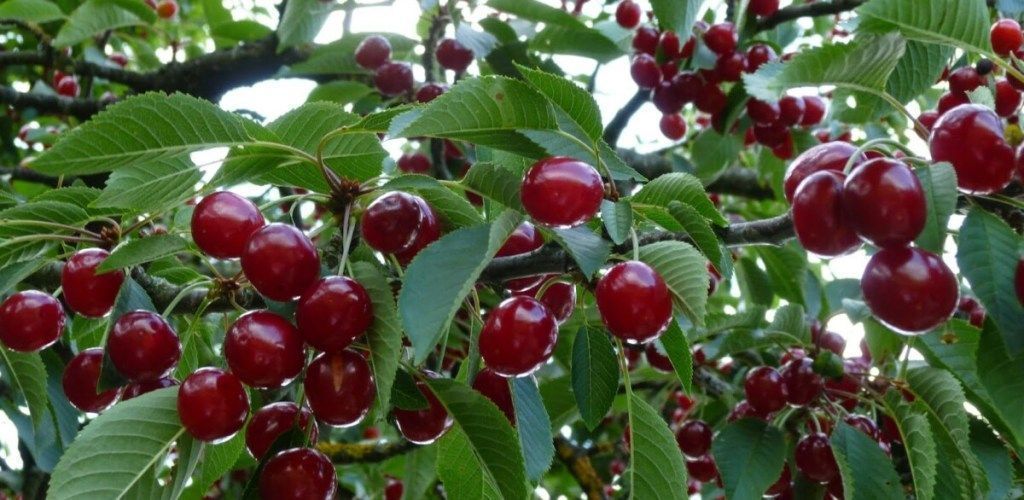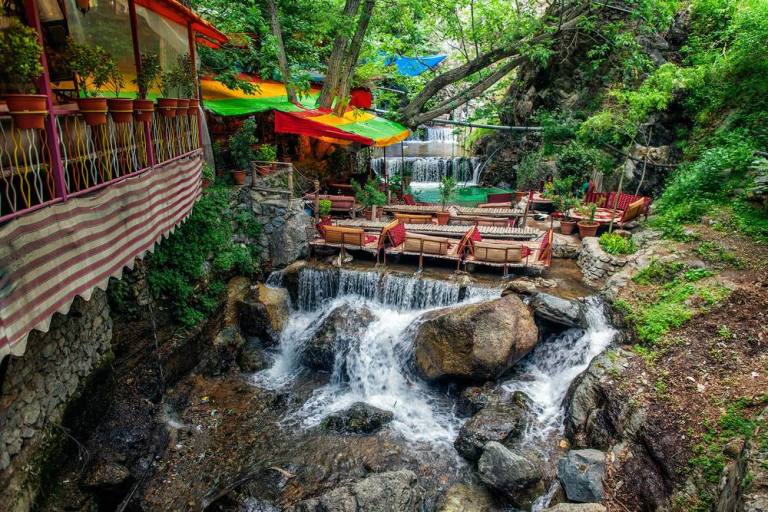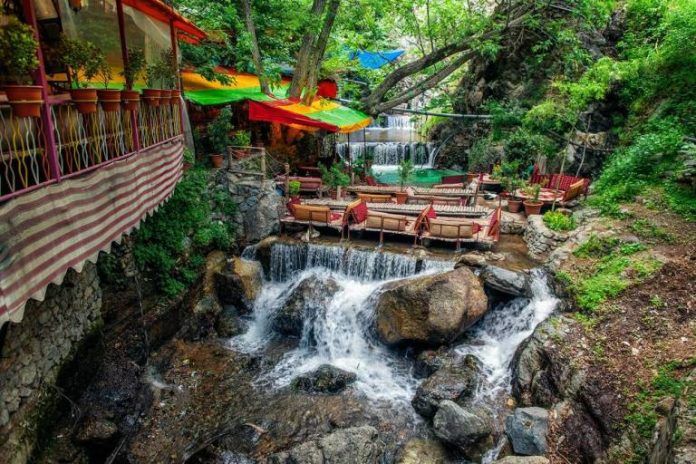Author: Roshan Firouz
[The views expressed in this blog post are the author’s own.]
My father loved Paris, not just in the springtime, in any season. And not for Paris itself, nor the Parisians, not even the museums and the incredible culture that envelopes you when your are there. He just loved oysters and he loved sitting in a Parisian restaurant being served them in that special je ne sais quoi – I don’t know how, way that only the Parisians can pull off. He didn’t get to Paris very often, but when he did, he relished and appreciated his culinary experiences to the core: with gusto and sheer exuberance.
The last time my father came to Paris was a few years after the Iranian revolution of 1979. He had survived a revolutionary prison – and all that it entails. Following his release there was an obligatory period of “probation”, which basically meant that no matter the verdict, you were not allowed to leave the country and were not given a passport – the militant and fanatical equivalent of being kept at Her Majesty’s Pleasure. To be entirely fair, the withholding of passport/proof of identity was not a new phenomenon, it had been used as a tool to control free speech through many Iranian regimes. When the permission to travel was eventually given, my father took the next flight to Paris.
This called for a momentous celebration, given that he had been deprived of oysters (not to mention human rights) for nearly a decade. I chose a lovely little restaurant in the 6th arrondissement for what we were quite sure would be the dream meal. The staff had been prepped, Champagne was on ice and oysters at the ready.
“En entrée puis-je offrir à Monsieur une douzaine d’huîtres?” asked the waiter with a knowing smile. My father looked delighted, like a child at Christmas, a wonderfully uncomplicated and pure happiness. He seemed to have managed to put the past few years behind him, even if it might have been a temporary laying aside of the horrors he had endured in the name of “liberating” Iran. When the bottle of Champagne accompanied by a huge platter of oysters on ice arrived there were cheers and clapping from all in the little restaurant, we seemed to be spreading the cheer.
“I don’t know about you ladies but I am having another helping of oysters for my main course”. Not exactly as it is done chez les Français, but with much flourish, another platter of oysters was brought over, carried up high, then swooping in to touch down elegantly on the table in front of my delighted father. When we finally left the restaurant, my father thanked the Maitre D’ who, in return, very kindly wished my father the best of health and a lovely stay in Paris – so much for the cliche reputation of Parisian waiters.
After the Iranian revolution of 1979, both of our farms were confiscated by the revolutionary authorities and it would take a year of bureaucratic wrangling and attempts to reason followed by begging and pleading to get back what legally belonged to my parents. My father’s construction company had been forcibly sequestrated by the revolutionary courts which meant that the house he rented as an office was vacant. You could say the timing was good, if you were really desperately looking for something positive to say in these circumstances – the premises of the defunct Firouz Construction Company became our home for a few years. It was prime real estate: a 15 minute walk to Tehran University where I was studying, half a block from the Armenian bakery and, most important of all, benefitting from a public bath house half a block away. With daily power cuts, hot showers at home were not a certainty. The bath house, on the other hand, never had its power cut. This gave it a real lease of life, a reminder of its traditional importance as a focal point of the neighbourhood. Men used it in the morning and women in the afternoon.
With his Champagne taste, my father decided that the hooch provided locally and clandestinely by Armenians, a sort of vodka made with raisins or potatoes, was just not up to his coveted and yet-to-be-reached standards. There had already been a number of alcohol related deaths in Tehran, with people getting their Ethyl and Methyl confused. Therefore, by his reasoning, the safest and most fruitful option was to make his wine himself. To back up this theory, he quoted Louis Pasteur: “Wine is the most healthful and hygienic of beverages”.
My father set to work gathering not only all he needed to make wine but also a still to make liquors. The various bits and pieces took some sourcing in post revolutionary Tehran but were eventually tracked down. To add to the challenge, the parts could not all be bought from the same merchant as this could raise suspicions leading to being reported and arrested. A reference book of biblical proportions appeared, thanks to a not entirely disinterested Irish friend. This tome was a mine of instructions and information on how to be self sufficient – “only you Irish would equate self sufficiency with a steady supply of alcohol” kidded my father, not without a hint of admiration.
One of the few servants who remained with us after the revolution, both in person and also in terms of loyalty, was Esmail. He had been working with my family for as long as I could remember. A native of Esfahan, Esmail had been born with an abnormality that meant he could not straighten his legs. Confined to a constant squatting position, he was forced to push his bent legs forward with his hand in order to move. He was very proficient at it, having never had another option. Esmail accompanied us, from farm to city – he would not have found work with anyone else and he was much appreciated by all of us. He could do anything at floor level and for my father’s brewing operation, Esmail was indispensable – pulling 50 kilos of grapes off the stalks or taking seeds out of 10 kilos of sour cherries is not the work of just anyone, kare harki neest.
There followed an enormously productive period, starting with wines. Similar to the still, one couldn’t buy all the grapes from the same place as this would cause suspicion – not with the seller of the fruit but at the road blocks that dotted Tehran at the time. These were usually manned by indoctrinated kids, acting like a trigger happy and potentially homicidal neighbourhood watch group. As young as 12 years old, these mini-militants, completely uncompromising and touting machine guns and Uzi’s were desperate for even the tiniest excuse to insult and abuse anyone and everyone.
Once he had mastered wine making, my father felt he needed a new challenge and consulted his Imbibers Anonymous. Iran produces some of the most delicious and flavourful fruit imaginable: not at all the perfectly polished and tasteless produce that is found in western supermarkets, we have seasonal fruit that comes straight from an orchard somewhere nearby and tumbles off of the back of a van or a cart, straight into a bag. The popular vote was in favour of sour cherry brandy. This is called Vishnovka in Iran, a complete mispronunciation of the original Russian word. And with it being the season for sour cherries, street sellers at every corner had mounds of the beautiful ruby red fruits on their carts.

Our downstairs bathroom was a huge converted basement/ storage area. The bathtub had a wide ledge all around it with a larger area at the end to leave folded towels and toiletries. All this was cleared for my father’s distillery. The various stills and kit were set up between the bath and sink, along the wall. A narrow path was left for getting from the door to the sink, the loo or the bath. Mum’s bubble baths and shampoos were pushed over to the side to make space for containers of sugar. During wine making sessions, the bath was filled with grapes and we all took turns stomping on them, two being the maximum that could fit in the tub. Huge vats held fermenting fruit – Mum was a Virginia girl and she insisted on having her peach brandy. This was shockingly delicious, a killer drink, sneaking on you, leaving unsuspecting drinkers completely inert in their chairs.
On the rare occasions where the electricity lasted long enough to fill a bath with hot water, Mum would claim her rights and get in for a soak. My father was usually in the middle of a delicate operation and would grumble that her timing was deplorable. On one occasion he really was at a crucial stage in the procedure, testing his sour cherry brandy and she agreed to let him work around her. With the vat perched on the edge of the bath, decanting the vermillion red nectar into a glass, he suggested that she should try his concoction: “I’ve really outdone myself this time, try this” he said holding out the glass. “I can’t hold a glass now, my hands are slippery with bubble bath” she complained. “Open your mouth and I’ll let a few drops out from the tube”. But gravity got the better of him and somehow, a slight miscalculation meant the brandy came gushing out of the tube, under pressure, and straight into Mum’s mouth. Coughing and spluttering, she moved her head and the lovely brandy spilled into her bath which turned blood red before my father could get control of the hydraulics. “What a waste” he lamented. “But delicious, and who knows, it might have wondrous benefits for my skin”. Hearing the giggling I came in to find the horrific sight, a Marat-esque scene, straight out of a French revolutionary painting.
Nonetheless, the finished product and the whole enterprise was referred to as the Smash-hit, a total success and boosted my father’s confidence, his ego and his standing and demand amongst the Imbibers extraordinaire. This group was comprised of a close knit group of friends who had not emigrated to Los Angeles or London, choosing instead to brave the deprivations and challenges of post revolutionary Tehran. And of course, many of the journalists based in Tehran – have you ever known a journalist to turn down a drink?
Having proven that he was gifted as a distiller my father went on to make the most amazing selection of spirits, both red and white wine plus the various seasonal fruit liquors – we decided against onion vodka. What had been overlooked so far was beer – this occurred to my father quite suddenly, one morning, while perusing his Bacchanalian tome over coffee. Finding all the necessary equipment for beer making was going to be a huge challenge, but not insurmountable. At this point, foreign diplomats stepped in to help and all of the bits and bobs were ordered from abroad. The enormous package was delivered in an anonymous looking van, during rush hour, in the hope of avoiding being pulled over by the mini terrorists and their Uzi’s.
On the north side of Tehran, climbing the foothills of the massive Alborz mountains, is Darband. This originally would have been a tiny village, a place to go in the summer to escape the heat of the lower altitudes of central Tehran. It is now attached to the city but has retained its intimate village atmosphere. All the runoff from the permanent snow on the Tochal mountain comes cascading down the valleys and is funnelled through little streams at the edge of winding allies. These lanes are edged with little cafe’s where food is served in the Iranian style, on raised wooden platforms.

On this particular summer evening, central Tehran felt unbearable: suffocating, claustrophobic and oppressive. With my beloved we headed north for an evening in Darband, for a dose of fresh air, the feel of the cool breeze coming down off the snow covered peaks, and for some quiet time for us. Bahram and I worked together as researchers but it was rare to get time alone. We reclined on our wooden seat and dipped our feet in the fast flowing glacial water, wondering how long it would take for them to go completely numb. In this little liberal enclave, genial behaviour was the norm and carried no penalty, a normally unoffending sign of affection between a couple, such as holding hands, was not maligned. But this was only an escape, not the real world – it would not be long before the morality police would swoop down on this beautiful little piece of heaven.
We were shocked out of a sense of safety and comfort by the sound of gunshots. One look at the watch “damn, curfew is starting in 15 minutes”. We ran down to the car, thanking our lucky stars that the gunfire seemed to be coming from a different neighbourhood. Tearing down the tree lined avenues towards the centre, we thought we might have just done it, that we were safe, nearly home. But then we reached the inevitable checkpoint and the hairs on the back of my neck rose as I spotted the heavily armed youngsters, attitude carved deeply into their expressions – we were easy pickings, prime prey. With guns pointing at us, we were asked what we were doing out so close to curfew.
“We went to take food to my grandfather who cannot leave his house” I lied quickly.
“Keep your mouth shut woman, we were asking him” Oh god, Bahram is too nice, he won’t spin a good enough lie, I thought in panic.
“We were taking food to our grandfather, like she said” replied Bahram.
“Filthy liars, you look like a pair of decadent and degenerate liars. And what is you relationship?”. Cold hard terror in the bottom of my stomach: young couples are not supposed to be seen together unchaperoned, Bahram is a Christian I am a Muslim, in my mind the potential list of accusations and incriminating evidence grew along with the feeling of nausea in my stomach. “We are cousins”.
“Get lost and don’t let us see you again. Next time we will shoot you, not just because you are obsolete and despicable but because you are out after curfew”.
“Absolute little shits”, said Bahram as we sped off. Bahram was the most generous hearted and kind person, it took a lot to get him upset. Eventually, we would get used to such people talking to/at us in this way, and we would all learn to keep our mouths shut. It is with profound sadness that I say that some of us would get off easier than others.
By the time we parked the car near my parents house I was shaking. Thanks to the curfew, the gunshots and our little run in with the baby revolutionaries, my nerves were in shreds. I slipped my hand into Bahram’s pocket looking for the comfort of his hand and we walked along in our own little bubble. Rounding the corner, my heart lurched at the sound of yet more gunshot sounds coming from the direction of my parents’ house. Racing to the front door, we were horrified to find that the shooting sounds were coming from inside the house. My hands were shaking so badly I had to ask Bahram to take my keys and open our front door. In a complete panic, we followed the salvo down the stairs to find that the barrage was coming from the bathroom/storage area. My mother was outside in the corridor shaking, tears streaming down her face. I tried to hold her but she pointed frantically towards the bathroom, wailing incoherently. “Bahram please go and see” I pleaded, petrified of what I might find.
After a minute, a seemingly intact and smiling Bahram came out and took my hand, leading me into the bathroom. My father’s entire stock of beer was shooting its caps off and these were hitting his metal still and making a double gunshot sound. My mother had been laughing uncontrollably, and the tears and shaking were from an overdose of hilarity.
Daddy was heartbroken by the total failure of his attempt to make beer. We helped him clean up the mess as quickly as possible, even taking the caps off the beer bottles that had yet to explode. Hoping fervently that inquisitive neighbours would not come prying, we saw that Esmail, our crippled servant was at the door telling all enquirers that we were having problems with our generator. Sweet smelling hops was the prevailing scent, no matter how many times we mopped the floor. “I bet you’re hopping mad Daddy”. “It smells so damn good, can’t believe we are sponging it off the floor. We should be drinking this stuff” said my father, mournfully. But consolation came in the form of the latest batch of Vishnovka, which calmed our nerves. “It’s a bloody good thing it all happened in the basement, or else we would have had the guards in” remarked Mum, merrily, the brandy having worked its wonders.
“Bring the pure wine of love and freedom. But sir, a tornado is coming. More wine, we’ll teach this storm a thing of two about whirling.”
Molana Jalaleddine Balkhi (Rumi)


